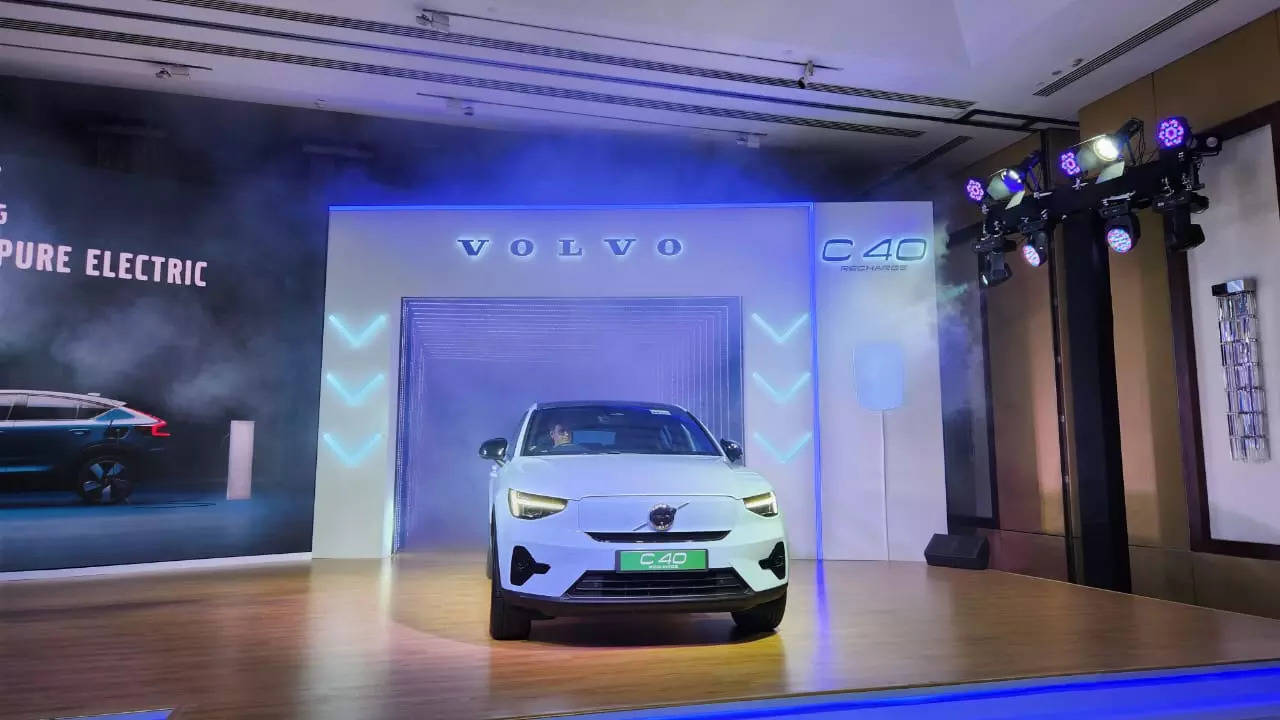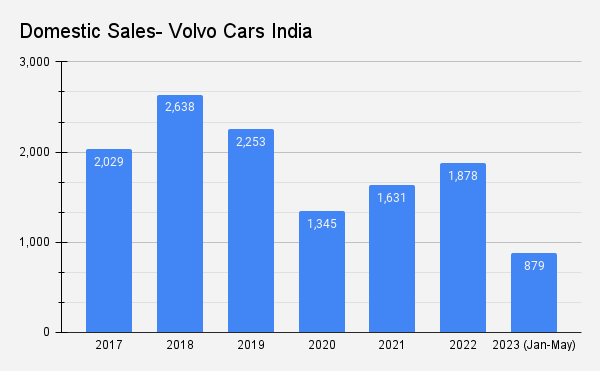
New Delhi: The Indian arm of Swedish luxury carmaker Volvo, will sell directly to customers its recently unveiled second EV offering in the country, the C40 Recharge SUV. Volvo India will be the second luxury carmaker to adopt the Direct-to-Customer (D2C) retail business model after Mercedes Benz India.
“We opted for a direct sales model for the XC40 and the response has been good. Now we will opt it for the C40 Recharge as well. The plan is to gradually move all the models to this direction,” Jyoti Malhotra, Managing Director, Volvo Cars India, told ETAuto.
“The role of showrooms has evolved from being transactional to experiential. This retail sales model will bring transparency and improve customer convenience,” he said.
With this fast-track retail business model, Volvo will own the entire stock of the respective cars, sell them via appointed franchise partners, invoice the new cars to the customers directly, process the order and complete them.
According to Amit Kaushik, Country Head & MD, Urban Science, “The D2C business model is a parallel retail strategy to the automaker’s existing networks. For Volvo, this could be a platform where they can test the overall market sentiment by trying it with the electric versions of its highest selling ICE vehicles.”
“With D2C, automakers get rid of the high inventory rates, which in some cases, contribute to about 10%-15% of the overall expenses. Besides, it helps to cut down the fixed infrastructure, and direct sales manpower. The expenses go down, efficiencies improve, delivery timeline is managed and one price strategy is maintained across the country,” he said.
Mercedes Benz India started selling cars directly to its customers via the Retail of the Future (ROTF) business model, introduced in October 2021. India was its fourth market to launch ROTF, after South Africa, Sweden and Austria.
Experts believe that while the model is not feasible for the mass market OEMs owing to large volumes, other premium carmakers including BMW, Audi, JLR may follow suit gradually.
D2C for global markets
Globally, Tesla sells cars directly to its customers via an online platform. The EV maker has showrooms for experience and test drive the vehicles, but the transaction and sale are done directly by the OEM.
In the Asia-Pacific region, Honda Australia transitioned its dealership network from franchise operations to a direct sales model in 2021, taking ownership of the stock and setting non-negotiable, fixed prices across the country. A lot of automakers in China are also exploring this model, even though it is not fully implemented yet.
While many of Volvo’s direct sales channels are already operational in the United Kingdom (UK), last month the automaker announced that it will move to a 100% direct-to-market business model in the region, similar to that of Tesla.
“In June this year we’ll be taking the next important step as the UK becomes our first 100% direct market when we close the UK wholesale channel. It is important to note that we are not closing the Volvo Cars retailers. They continue to be an important part of a seamless online and physical consumer experience,” the company said last month.
Since 2019, Volvo cars can be ordered online in the UK. In 2022, online and direct sales represented 11% of its total sales in its top five European markets, which is also the company’s largest sales region.
“Unlike other countries, India is a bit complex. Every state has a different tax system, so keeping all of that in mind there are lots of learnings and it will only happen gradually here,” Malhotra said.
Kaushik believes that the D2C sales model can be explored by premium automakers but traditional dealership facilities will not go away. So, one must evaluate the demand potential, network strategy, and customer behaviour before venturing into this, to avoid disturbing the existing network base.
Highest-ever sales expected in 2023
Volvo Cars India clocked its peak sales in 2018 at over 26,000 units. Now, overcoming the Covid-related issues, it expects to cross this peak in 2023. In the January-May 2023 period, the company sold 879 units.
“We expect to clock our highest-ever sales volumes in 2023. So far, it looks like we will be able to cross the peak of 2018 as the consumer demand is robust. However, the semiconductor supply is still a constraint,” Malhota said.
In line with its global target of achieving 50% EV sales by 2025, and going fully electric by 2030, the carmaker said its ambition is that “half of the total sales should be electric before 2025, ahead of the global target.” Going forward, Volvo will only launch EVs in India. Currently, 27% of its total sales in the country come from EVs.
The recently-showcased Volvo C40 Recharge would be imported as completely knocked down (CKD) units and assembled at the company’s Bengaluru plant as is being done with the XC40 Recharge. The C40 will be launched in August and its deliveries will begin in September. Last year, the company launched its first EV XC40 Recharge.
The company currently sells the fully-electric XC40 Recharge, SUVs XC90, XC60 and XC40 and sedan S90 in India.


















